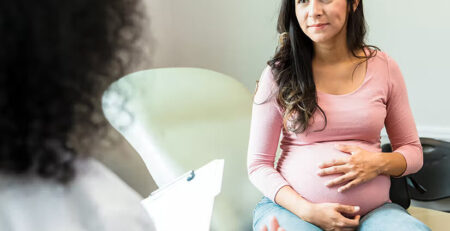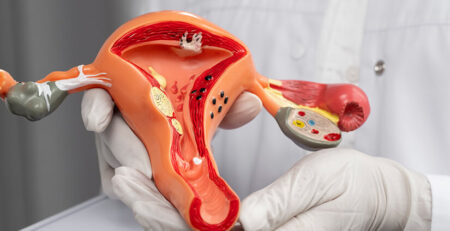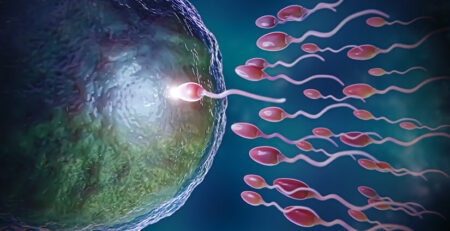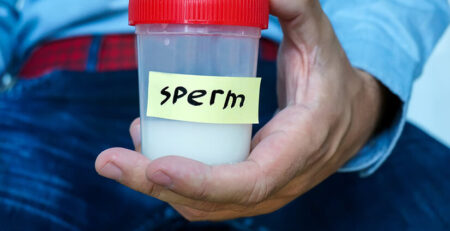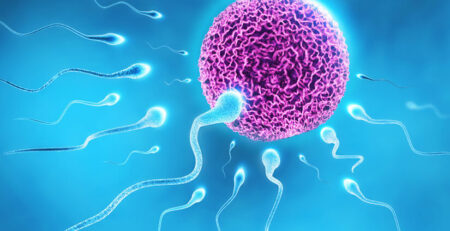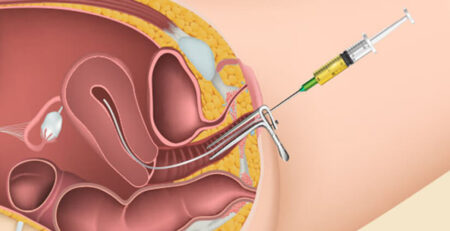How to Get Pregnant – A Complete Guide
Starting a family is a monumental and thrilling chapter in life, but navigating the best ways on how to get pregnant can sometimes be daunting. Fear not! This extensive guide will walk you through everything you need to know to increase your chances of conceiving, ensuring your journey to parenthood is as smooth as possible.
Get Familiar with Your Menstrual Cycle
The foundation of learning how to get pregnant lies in understanding your menstrual cycle. Familiarising yourself with the phases of your cycle and identifying your fertile window can significantly enhance your chances of conception. A typical menstrual cycle lasts about 28 days but can vary from woman to woman. The most fertile days generally fall in the middle of the cycle, around day 14. Utilising tools such as ovulation predictor kits, tracking basal body temperature, or using fertility apps can help pinpoint ovulation.
Phases of the Menstrual Cycle:
- Menstrual Phase: This is when the uterus sheds its lining, resulting in menstruation.
- Follicular Phase: This phase begins on the first day of menstruation and lasts until ovulation. The body prepares to release an egg by stimulating the ovaries.
- Ovulation Phase: Typically occurs around day 14 in a 28-day cycle. An egg is released from the ovary and is ready for fertilisation.
- Luteal Phase: After ovulation, the body prepares for a possible pregnancy. If fertilisation does not occur, the cycle restarts with the menstrual phase.
Tracking Ovulation:
- Basal Body Temperature (BBT): Measure your temperature every morning before getting out of bed. A slight increase in BBT indicates ovulation.
- Cervical Mucus Monitoring: Changes in cervical mucus can signal ovulation. Clear, stretchy mucus is a sign of fertility.
- Ovulation Predictor Kits: These kits test hormone levels in urine to predict ovulation.
Healthy Lifestyle Choices
Adopting a healthy lifestyle is essential when trying to conceive. Here are key habits to integrate into your routine that will answer a lot of questions on how to get pregnant.
- Balanced Diet: Focus on a diet rich in fruits, vegetables, whole grains, and lean proteins. Nutrients like folic acid, iron, and omega-3 fatty acids are particularly beneficial.
- Regular Exercise: Aim for moderate exercise, such as walking, swimming, or yoga, which can help maintain a healthy weight and reduce stress.
- Avoid Harmful Habits: Steer clear of smoking, excessive alcohol consumption, and recreational drugs, as they can impair fertility.
- Manage Stress: Incorporate stress-relief techniques such as meditation, deep-breathing exercises, and mindfulness practices to keep your mental health in check.
Optimal Timing for Conception
Timing is vital when trying to get pregnant. The fertile window, usually spanning five days before and the day of ovulation, is the optimal time for conception. Engaging in intercourse during this period increases the likelihood of sperm meeting the egg and to get pregnant.
Tips for Optimal Timing:
- Regular Intercourse: Engaging in regular intercourse, especially during the fertile window, maximises the chances of conception.
- Lubrication: Use fertility-friendly lubricants. Avoid those that can harm sperm.
- Healthy Sperm: Ensure the partner maintains a healthy lifestyle to produce healthy sperm. Factors such as smoking, alcohol, and heat can affect sperm quality.
Understanding Fertility
Understanding the various factors that affect fertility can help you take proactive steps to enhance your chances of getting pregnant. Age, lifestyle choices, and underlying health conditions play significant roles.
Age and Fertility:
- Fertility naturally declines with age. Women under 30 have a 20-25% chance of conceiving each month, while this rate drops to around 10% by age 40.
- Men also experience a decline in fertility with age, although it is less pronounced than in women.
Lifestyle Choices:
- Maintaining a healthy weight is the key. Both underweight and overweight conditions can affect hormonal balance and ovulation.
- A diet rich in antioxidants, vitamins, and minerals supports reproductive health.
- Regular exercise boosts overall health and reduces stress, but avoid excessive exercise as it can negatively impact fertility.
Health Conditions:
- Conditions like polycystic ovary syndrome (PCOS), endometriosis, and thyroid disorders can affect fertility. Managing these conditions with medical guidance is essential.
- Regular health check-ups can identify and address potential issues early. Choose the best gynaecologist in Delhi to keep up with your checkups.
When to Seek Medical Help for the Possibilities of How to Get Pregnant?
If you’ve been trying to conceive for a year (or six months if you’re over 35) without success, it may be time to consult a professional. The best gynaecologist in Delhi can perform a thorough evaluation and provide guidance on the next steps. Early consultation can address any underlying issues promptly, boosting your chances of getting pregnant. Seeking the opinion of an infertility expert doesn’t mean landoing up in IVF. Infertility specialists too would evaluate you thoroughly and guide you to a treatment specific for you, ranging from simple monitoring to Intrauterine insemination.
Consultation Process:
- Initial Assessment: The doctor will review your medical history, menstrual cycle, and lifestyle factors.
- Diagnostic Tests: Blood tests, ultrasounds, and semen analysis can help identify potential issues.
- Personalised Plan: Based on the findings, a personalised plan, including lifestyle changes and potential treatments, will be developed.
Exploring Fertility Treatments
For those encountering challenges with natural conception, fertility treatments can offer hope and solutions. Here’s a closer look at some options:
- Medication: Fertility drugs can stimulate ovulation in women who have difficulty ovulating naturally.
- Intrauterine Insemination (IUI): This procedure involves placing sperm directly into the uterus around the time of ovulation.
- In Vitro Fertilization (IVF): IVF is a widely known assisted reproductive technology. The process includes stimulating the ovaries to produce multiple eggs, retrieving them, fertilising them with sperm in a lab, and then transferring the embryos into the uterus. The IVF Centre in Delhi is equipped with cutting-edge facilities and a team of experienced professionals to support you through this journey.
Types of Fertility Treatments:
- Clomiphene Citrate (Clomid): A medication that stimulates ovulation.
- Gonadotropins: Hormones that stimulate the ovaries to produce multiple eggs.
- IVF: Involves fertilising an egg outside the body and implanting it into the uterus.
- Intracytoplasmic Sperm Injection (ICSI): A single healthy sperm is injected directly into an egg.
- Donor Eggs or Sperm: Used when there are significant fertility issues.
Choosing the Right Pregnancy and Gynaecologist Specialist
Selecting the right specialist is a pivotal step in your path to parenthood. The best gynaecologist in Delhi will provide personalised care and advanced treatments tailored to your specific needs. Ensure your chosen doctor is compassionate, experienced, and has a strong track record of success in fertility treatments.
Factors to Consider:
- Experience and Credentials: Look for a specialist with extensive experience and a strong educational background who can give you the right guidance on how to get pregnant.
- Success Rates: Research the success rates of the specialist’s treatments.
- Patient Reviews: Read reviews and testimonials from other patients.
- Comfort Level: Choose a doctor with whom you feel comfortable and supported.
Emotional and Psychological Preparation
Preparing emotionally and psychologically for the journey of trying to conceive is just as important as physical readiness. Here are some tips to keep in mind:
- Stay Positive: Maintaining a positive outlook can help manage the emotional rollercoaster that often accompanies the journey to conception.
- Seek Support: Join support groups or talk to friends and family about your experiences. Sharing your feelings can provide comfort and reassurance.
- Educate Yourself: Knowledge is empowering. Read up on fertility, conception, and the different stages of pregnancy to stay informed and prepared. Meeting the best gynaecologist in Delhi can also help to get the right education.
Frequently Asked Questions
Most couples conceive within six months to a year of trying. Patience and persistence are key.
Age, lifestyle choices, and underlying health conditions can all impact fertility. Regular check-ups and a healthy lifestyle are essential.
Success rates vary based on factors such as age and specific fertility issues. Generally, younger women have higher success rates with IVF.
While fertility naturally declines with age, many women successfully conceive in their late 20s to mid-30s. Early planning and consultation with a specialist can provide a clearer picture based on individual circumstances.
Embrace the Journey
Understanding how to get pregnant involves a blend of timing, healthy habits, and sometimes medical intervention. Being proactive and well-informed is key to realising your dream of parenthood.
For personalised care and advanced fertility treatments, consult Dr. Rhythm Gupta, one of the best gynaecologists in Delhi. With a compassionate approach and a wealth of experience, Dr. Gupta offers the best possible care to help you on your journey to parenthood.
Book a consultation at the IVF Centre in Delhi or call to schedule your appointment today.
By following this guide and seeking the right help, you can take confident steps towards achieving your goal of getting pregnant.


